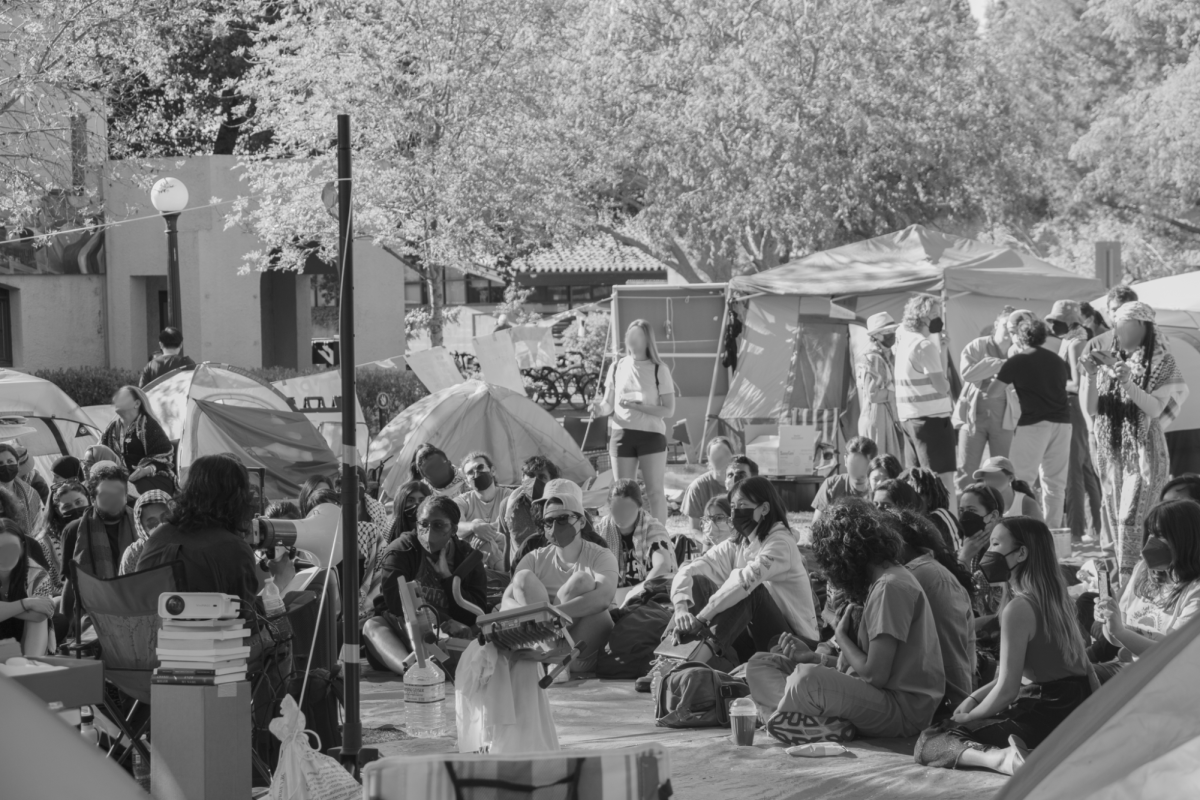In 1964, the Free Speech Movement at the University of California, Berkeley, began as a way to protest the university’s restrictions on political activities on campus. Small protests quickly escalated to large-scale demonstrations, such as at Sproul Hall, where around 1,000 students gathered together on Dec. 2 as an act of civil disobedience.
Police responded to the show of courage by arresting 733 students on counts of trespassing. The following years were marked with students fighting bitterly against the university, exacerbated by the Vietnam War.
One such protest at People’s Park in 1969 saw the death of a student, fatally shot after the university called the police to disperse the protest. Then Governor Ronald Reagan would later defend the actions undertaken by the police, saying “If it takes a bloodbath, let’s get it over with. No more appeasement.”
There is a striking parallel between those protests that took place throughout the 1960s, protests that shaped a culture of campus activism nationally, and the protests happening on campuses today, especially in how our universities have reacted.
Across the nation, thousands of students have poured out of their classes and into the streets, demanding divestment from institutions they see as supporting Israel in its ongoing war in Gaza. Encampments, occupations, and protests are now daily occurrences at nearly every major university in the United States.
As the Washington Post reported, over 2,000 have now been arrested as a direct response to campus protests. That number continues to grow daily.
Students should have the right to peacefully protest.
The crackdown on protests by the police has been largely unacceptable. It is no longer a way to protect students, but rather a crackdown on the right to demonstrate on university campuses. Political freedoms should not end at the prestigious gates of higher education.
We will not justify every single action taken by protestors. There is no justification for people who use this moment to spread sectarian hatred. This editorial is not an endorsement of the content or ideas propagated at these protests.
But it is an endorsement of something held closely to the heart of every renegade everywhere: The freedom to speak openly, without fear of reprisal at the hands of the state.
The precedents set by these protests, including their suppression, risk undermining activism nationally. We cannot ‘draw the line’ of when peaceful protest is ‘acceptable’ to us, even if we disagree with the opinions being expressed. Rather, we must unilaterally stand behind the sacred virtue of protest.
What seemed like nothing but a disturbance that needed to be squashed in 1964 ended up becoming a monumental moment for free speech on university campuses all across America. We simply cannot allow university administrations today to treat student demonstrators as nothing more than agitators and let all the past decades of struggle for rights be reversed.
There are a variety of ways in which to do this. As many of us leave Paly for higher education nationally, our universities must know that we demand accountability. Without an open, transparent process of dialogue, we end up embracing decisions made in the dark as an alternative to democratic expression. Write to your dean, members of school administration, and local representatives.
Above all, we encourage students to look past their zeal in understanding the big picture here. Beyond the campuses and the ferociousness of police violence. Society currently stands at a crossroads. Will we march into a dark future, where unpopular speech lacks any protection? Or will we stand against the repressive current, and demand the democratic right to exercise our First Amendment rights?
We choose democracy. The question is now: Will you?
